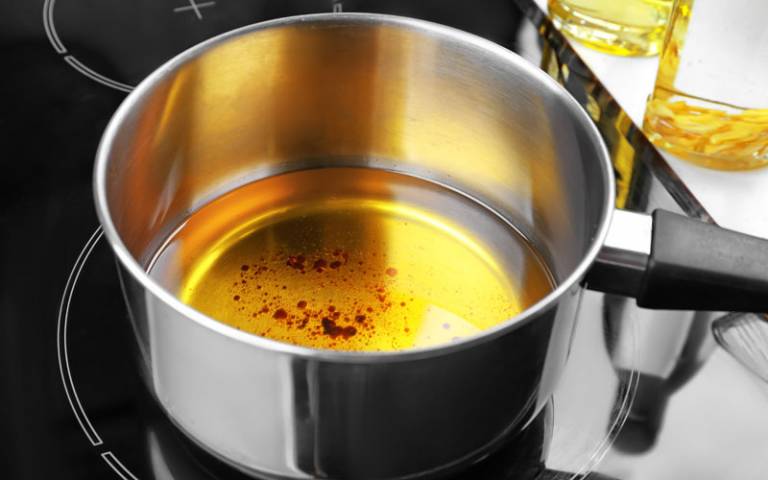Waste cooking oil to clean energy
Transforming waste cooking oil into liquid biofuel

14 February 2020
Energy usage is closely linked to climate change, because most of the energy we consume (in cars, homes, industry, transportation, electronic devices) comes from fossil fuels. Sustainable alternative energy sources are urgently needed to reduce the impact on climate change.
Biofuels are amongst the most important sustainable energy sources. Plants take energy from the sun and carbon dioxide from the atmosphere to form sugars, while the excess sugars are transformed into oil.
These sugars and oils store carbon that otherwise would be left in the atmosphere. Over the years, plants have been domesticated to increase the amount of sugars and oil they contain and their nutritional value. Biofuels are commonly produced from the sugars (sugarcane, sugar beet) and oils of some plants (rapeseed, soybeans, sunflower, palm).
The wide uptake of biofuels is still facing challenges, with main ones including high production costs, availability, and ethical considerations since biofuel crops compete for arable land with food crops.
This could make food scarce and more expensive! To increase the competitiveness of biofuels, efficient production processes coupled with raw materials that are renewable and do not compete with food sources should be employed.
In the Department of Chemical Engineering we are researching how to make liquid biofuels from waste cooking oil.
We use novel methods based on process intensification to transform the waste cooking oil into biofuel using appropriate reagents and catalysts (a substance that helps the reaction happen that is not consumed during the process).
We have developed new impinging-jets and small-channel reactors that intensify and improve the overall process. We are also investigating the scale-up of these systems so they can be used at industrial scale.
- Find out more on the ThAMeS Multiphase website
 Close
Close

